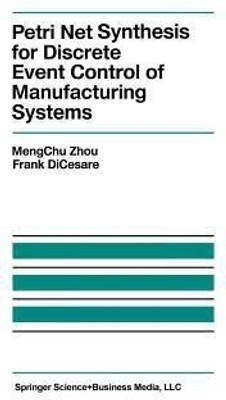Petri Net Synthesis for Discrete Event Control of Manufacturing Systems(English, Paperback, MengChu Zhou F.)
Quick Overview
Product Price Comparison
Petri Net Synthesis for Discrete Event Control of Manufacturing Systems develops two essential resource-sharing concepts: parallel and sequential mutual exclusions and theoretical results in Petri synthesis. A parallel mutual exclusion (PME) is defined to model a resource shared by independent distributed processes, and a sequential mutual exclusion is a sequential composition of PMEs, modeling a resource shared by sequentially-related processes. A hybrid synthesis methodology for Petri net models and controllers is proposed using top-down, modular, and bottom-up design ideas and the mutual exclusion theory. An aggregate Petri net model is refined by replacing places and /or transitions with basic design modules which are mathematically and graphically described. Petri net design methods are presented for such buffers as automatic storage and retrieval systems. Using the proposed method synthesizes both Petri net structure and feasible initial markings, guaranteeing that resulting Petri nets have desirable system properties such as freedom from deadlock and cyclic behavior. A Petri net controller is extended to error recovery for automated manufacturing systems. The theory can guarantee that the desired system properties achieved by the original design will be preserved when the controller is augmented to deal with an error in the prescribed methods. Control code has been directly generated from Petri net definitions. The algorithm and implementation details are given for a flexible manufacturing system. Using the approach presented in Petri Net Synthesis for Discrete Event Control of Manufacturing Systems, engineers and research workers can develop their own discrete event control applications and experiments.


